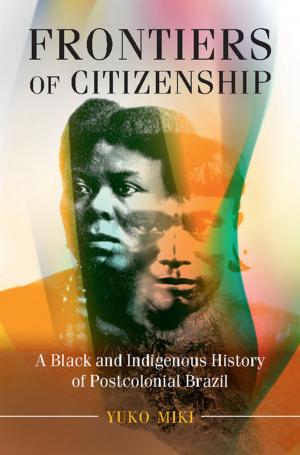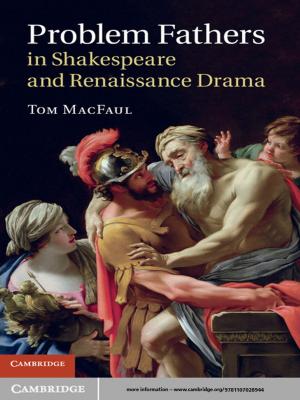Modernism, Male Friendship, and the First World War
Fiction & Literature, Literary Theory & Criticism, British, Theory| Author: | Sarah Cole | ISBN: | 9781107385764 |
| Publisher: | Cambridge University Press | Publication: | August 28, 2003 |
| Imprint: | Cambridge University Press | Language: | English |
| Author: | Sarah Cole |
| ISBN: | 9781107385764 |
| Publisher: | Cambridge University Press |
| Publication: | August 28, 2003 |
| Imprint: | Cambridge University Press |
| Language: | English |
Sarah Cole examines the rich literary and cultural history of masculine intimacy in the twentieth century. Cole approaches this complex and neglected topic from many perspectives - as a reflection of the exceptional social power wielded by the institutions that housed and structured male bonds; as a matter of closeted and thwarted homoerotics; as part of the story of the First World War. Cole shows that the terrain of masculine fellowship provides an important context for understanding key literary features of the modernist period. She foregrounds such crucial themes as the over-determined relations between imperial wanderers in Conrad's tales, the broken friendships that permeate Forster's fictions, Lawrence's desperate urge to make culture out of blood brotherhood and the intense bereavement of the war poet. Cole argues that these dramas of compelling and often tortured male friendship have helped to define a particular spirit and voice within the literary canon.
Sarah Cole examines the rich literary and cultural history of masculine intimacy in the twentieth century. Cole approaches this complex and neglected topic from many perspectives - as a reflection of the exceptional social power wielded by the institutions that housed and structured male bonds; as a matter of closeted and thwarted homoerotics; as part of the story of the First World War. Cole shows that the terrain of masculine fellowship provides an important context for understanding key literary features of the modernist period. She foregrounds such crucial themes as the over-determined relations between imperial wanderers in Conrad's tales, the broken friendships that permeate Forster's fictions, Lawrence's desperate urge to make culture out of blood brotherhood and the intense bereavement of the war poet. Cole argues that these dramas of compelling and often tortured male friendship have helped to define a particular spirit and voice within the literary canon.















